
Country store on dirt road.
Sunday afternoon. Note the kerosene pump on the right and the gasoline
pump on the left. The brother of store owner stands near the doorway.
Gordonton, North Carolina
You know, so often it's just sticking around and being there, remaining there, not swooping out in a cloud of dust: sitting down on the ground with people, letting children look at your camera with their dirty, grimy little hands, and putting their fingers on the lens, and you just let them, because you know that if you will behave in a generous manner, you are apt to receive it, you know?
Photographers stop photographing a subject too soon before they have exhausted the possibilities.
I realize more and more what it takes to be a really good photographer. You go in over your head, not just up to your neck.
It is not a factual photograph per se. The documentary photograph carries with it another thing, a quality in the subject that the artist responds to. It is a photograph which carries the full meaning of the episode or the circumstance or the situation that can only be revealed -- because you can't really recapture it -- by this other quality. There is no real warfare between the artist and the documentary photographer. He has to be both.
A documentary photograph is not a factual photograph per se. It is a photograph which carries the full meaning of the episode.
The camera is an instrument that teaches people how to see without a camera.
While there is perhaps a province in which the photograph can tell us nothing more than what we see with our own eyes, there is another in which it proves to us how little our eyes permit us to see.
Photography takes an instant out of time, altering life by holding it still.
This benefit of seeing...can come only if you pause a while, extricate yourself from the maddening mob of quick impressions ceaselessly battering our lives, and look thoughtfully at a quiet image...the viewer must be willing to pause, to look again, to meditate.
Pick a theme and work it to exhaustion...the subject must be something you truly love or truly hate.
Hands off! I do not molest what I photograph, I do not meddle and I do not arrange.
Art is a by-product of an act of total attention.

Daughter of tobacco sharecropper at country store. Person County, North Carolina
Dorothea Lange: Wake County, North Carolina, July 1937

Zollie Lyons, Negro sharecropper, home from the field for dinner at noontime, and part of his family. He has thirteen acres of tobacco and a labor force of five. Upchurch, Wake County, North Carolina

Tobacco worms are bad this year on Zollie Lyons' place. Wake County, North Carolina

Zollie Lyons and son "worming" tobacco. Wake County, North Carolina

Worming tobacco. Note worm. Wake County, North Carolina

Kitchen door of Zollie Lyons' house. Note brushbroom. Wake County, North Carolina

Zollie Lyons repairing the tobacco sleds at beginning of the harvest season. Wake County, North Carolina

Grandchildren of tobacco sharecropper down at barns. Note construction of tobacco sleds which have just been repaired by Zollie Lyons. Beyond them the screened platform in which that member of the family sleeps who tends the fire during the night. Wake County, North Carolina

Grandchild of Zollie Lyons, tobacco sharecropper. Wake County, North Carolina

Two tobacco tenant mothers (related) with some of their children. Wake County, North Carolina

Home of Negro tobacco tenant, with addition of improvised garage. Wake County, North Carolina

Daughter of Negro sharecropper goes up and down the row "worming" the tobacco. Wake County, North Carolina

Tobacco on Zollie Lyons' place, nearly ready for priming. Wake County, North Carolina

Zollie Lyons, Negro sharecropper, home from the field for dinner at noontime, and part of his family. He has thirteen acres of tobacco and a labor force of five. Upchurch, Wake County, North Carolina
Photos by Dorothea Lange, July 1937, from Farm Security Administration/Office of War Information Collection, Library of Congress
Dorothea Lange: Chatham County, North Carolina, July 1937.

Main street, Pittsboro, Chatham County, North Carolina

Shopping and visiting on main street of Pittsboro, Chatham County, North Carolina. Saturday afternoon

Main street, Saturday afternoon. Pittsboro, North Carolina

Chatham County farmers in town on Saturday afternoon. Pittsboro, North Carolina

Street encounter on a Saturday afternoon. Pittsboro, North Carolina

Sign tacked to pole near the post office. Main street, Pittsboro, North Carolina

Tenant farmer. Chatham County, North Carolina

Tenant farmer and friend. Chatham County, North Carolina

Two tenant farmers. Chatham County, North Carolina

Wife of Negro sharecropper with two of her six children, none of whom go to school. Chatham Country, North Carolina

Negro tenant farmer reading paper on a hot Saturday afternoon. Note vegetable garden across footpath. Chatham County, North Carolina

Hickory Mount grange holds its meeting in an old school building, only white farmers attend. Chatham County, North Carolina

Fayetteville Street, Siler City, Chatham County, North Carolina

Appliqued embroideries for sale on street in front of ten cent store. Saturday afternoon. Siler City, Chatham County, North Carolina

Siler City, North Carolina. Wagons pulled up in field one block away from the main street
Photos by Dorothea Lange, July 1937, from Farm Security Administration/Office of War Information Collection, Library of Congress
Dorothea Lange: Granville County, North Carolina, July 1937

Sons of Negro tenant farmer go off visiting on Saturday afternoon. Granville County, North Carolina

Good tobacco, cropped and ready for priming. Granville County, North Carolina

Families stringing tobacco brought in from the field by sled. Granville County, North Carolina

Tobacco strung on sticks. Granville County, North Carolina

Coming out of tobacco barn in which tobacco is being cured. Careful check of temperature must be made. Granville County, North Carolina

Tobacco people take it easy after their morning's work of "putting up" tobacco. Granville County, North Carolina

Ten year old son of tobacco sharecropper can do a "hand's work" at tobacco harvest time. Granville County, North Carolina

Eight year old daughter who helps about the tobacco barn and takes care of the baby. Granville County, North Carolina

Dirt road. Earth is red-colored clay mud. Granville County, North Carolina

Crossroads hamlet after a rain. Culbreth, Granville County, North Carolina

Wife and five month old baby of young tobacco sharecropper (Mr. Taylor) in window of their home. She is seventeen years old. On the following day she helped "put in" tobacco at the farm. Granville County, North Carolina

Home of Negro tenant farmer. The right half was built hurriedly after the tornado in 1900 which destroyed all the houses in the section. The last half was built later. One of the daughters has come to the doorway, the rest are hiding. Granville County, North Carolina

Putting in tobacco after the morning work. Shoofly, North Carolina

Colored sharecropper and his children about to leave home through the pine woods after their morning work at the tobacco farm stringing and putting up tobacco. Shoofly, Granville County, North Carolina

Noontime chores: feeding chickens on Negro tenant farm. Granville County, North Carolina

Noontime chores on Negro tenant farm. The grandfather and children off to feed the pigs. Granville County, North Carolina

Noontime. Son and grandson of tenant farmer bring in the mules to water at noon. Granville County, North Carolina

Noontime chores. Mules are brought in from the field and watered at well across the road from the house. Granville County, North Carolina

Country filling station owned and operated by tobacco farmer. Such small independent stations have become meeting places and loafing spots for neighborhood farmers in their off times. Granville County, North Carolina

Country filling station owned and operated by tobacco farmer. Such small independent stations have become meeting places (community center) and loading spots for neighborhood farmers in their off times. Granville County, North Carolina

Oxford, Granville County, North Carolina. Small agricultural center. Note everpresent Confederate monument, and calf in a two horse wagon
Dorothea Lange: Granville County, North Carolina, July 1937

Sons of Negro tenant farmer go off visiting on Saturday afternoon. Granville County, North Carolina

Good tobacco, cropped and ready for priming. Granville County, North Carolina

Families stringing tobacco brought in from the field by sled. Granville County, North Carolina

Tobacco strung on sticks. Granville County, North Carolina

Coming out of tobacco barn in which tobacco is being cured. Careful check of temperature must be made. Granville County, North Carolina

Tobacco people take it easy after their morning's work of "putting up" tobacco. Granville County, North Carolina

Ten year old son of tobacco sharecropper can do a "hand's work" at tobacco harvest time. Granville County, North Carolina

Eight year old daughter who helps about the tobacco barn and takes care of the baby. Granville County, North Carolina

Dirt road. Earth is red-colored clay mud. Granville County, North Carolina

Crossroads hamlet after a rain. Culbreth, Granville County, North Carolina

Wife and five month old baby of young tobacco sharecropper (Mr. Taylor) in window of their home. She is seventeen years old. On the following day she helped "put in" tobacco at the farm. Granville County, North Carolina

Home of Negro tenant farmer. The right half was built hurriedly after the tornado in 1900 which destroyed all the houses in the section. The last half was built later. One of the daughters has come to the doorway, the rest are hiding. Granville County, North Carolina

Putting in tobacco after the morning work. Shoofly, North Carolina

Colored sharecropper and his children about to leave home through the pine woods after their morning work at the tobacco farm stringing and putting up tobacco. Shoofly, Granville County, North Carolina

Noontime chores: feeding chickens on Negro tenant farm. Granville County, North Carolina

Noontime chores on Negro tenant farm. The grandfather and children off to feed the pigs. Granville County, North Carolina

Noontime. Son and grandson of tenant farmer bring in the mules to water at noon. Granville County, North Carolina

Noontime chores. Mules are brought in from the field and watered at well across the road from the house. Granville County, North Carolina

Country filling station owned and operated by tobacco farmer. Such small independent stations have become meeting places and loafing spots for neighborhood farmers in their off times. Granville County, North Carolina

Country filling station owned and operated by tobacco farmer. Such small independent stations have become meeting places (community center) and loading spots for neighborhood farmers in their off times. Granville County, North Carolina

Oxford, Granville County, North Carolina. Small agricultural center. Note everpresent Confederate monument, and calf in a two horse wagon
Photos by Dorothea Lange, July 1937, from Farm Security Administration/Office of War Information Collection, Library of Congress
Dorothea Lange: Person County, North Carolina, July 1937



























Congregation gathers after services to talk. Wheeley's Church. Gordonton, Person County, North Carolina



The
tobacco barn, a distinctive American architectural form. Note tobacco
growing in field behind barn. Person County, North Carolina

Looking down a country road in Person County, North Carolina. Note light, sandy soil.

Father
of sharecropper family. He is sixty-nine years old, has six acres of
tobacco, has a large family. Heard in conversation on his porch, "Land
is like folks. It gets tired and needs a rest." Person County, North
Carolina

Negro tenant topping tobacco, Person County, North Carolina

Car
belonging to Negro share tenant family. The mother said they were not
running it because they did not have the money to buy tags. "I always
say rations and clothes comes before riding. I can stay at home." Near
Gordonton, North Carolina

Negro
plowing corn. He is a tenant; raises mainly tobacco; has lived here
for four years. The cornfield is grassy and poor. On dirt road from
Highway 144. Person County, North Carolina. He is saying "You ain't
looking for money, is you?"

Wife and child of young sharecropper in cornfield beside house. Hillside Farm, Person County, North Carolina

Young sharecropper and his first child. Hillside Farm. Person County, North Carolina

Home
of tenant, Hillside Farm. Note lathe fence to protect flowers in yard.
They have no privy and haul water. Sacks hanging on line are used to
haul tobacco to market. Person County, North Carolina

Hillside
Farm road leading from sharecropper's house back to the public road.
Disc harrow rusting in field and tobacco pack house with log "ordering
house" adjoining. Person County, North Carolina

White and Negro boys wrestling by side of road. Person County, North Carolina

Young farm boys, natives of North Carolina. Person County, North Carolina

Farm boy with his dog as companion ties out cow in pasture bordering the road. Person County, North Carolina

Mailbox and farm along country road in Person County, North Carolina

Construction detail of rail fence. Person County, North Carolina

Double
log cabin of Negro share tenants who raise tobacco. Family of eight
has been on this place six or seven years. Person County, North
Carolina

Construction
detail of double log cabin of Negro share tenants. The cowhide was
hung there after being dried on a barn to be used as floor covering.
Shelf shows churn, also bucket of water in which baby's bottle is kept
cool. Person County, North Carolina

Porch of Negro tenant house, showing household equipment. Person County, North Carolina.

Tobacco
barn. Person County, North Carolina. Piece of sheet iron on the left
is used to cover the opening of the furnace when starting the fire

Tobacco barn ready for "putting in". Person County, North Carolina

The
one-and-a-half story part of this house was built fifty to sixty years
ago. The two-story part was built in 1900. Farm is owned by a woman
whose husband died seventeen years ago. Person County, North Carolina

Story-and-a-half
weatherboard house. Note chinaberry tree, common for shade. Note soil
erosion in foreground. Note corner of tobacco field. Person County,
North Carolina

Scarecrow on a newly cleared field with stumps near Roxboro, North Carolina

Hoe culture in the South. Poor white, North Carolina

Congregation entering church. Wheeley's Church. Person County, North Carolina

Services are over. Wheeley's Church. Gordonton, Person County, North Carolina

Congregation gathers after services to talk. Wheeley's Church. Gordonton, Person County, North Carolina

Negro Baptist church, Person County, North Carolina

Young
North Carolinian in old Ford. He does not farm. "Works for wages." At
Tuck's filling station. Person County, North Carolina
Photos by Dorothea Lange, July 1937, from Farm Security Administration/Office of War Information Collection, Library of Congress
Dorothea Lange: Whitfield Family, Person County, North Carolina, July 1937

Mr. Whitfield, tobacco sharecropper, with baby on front porch. Person County, North Carolina

Wife and children of Mr. Whitfield, tobacco sharecropper, on front porch. Person County, North Carolina

Wife of tobacco sharecropper bathing baby in her kitchen. Person County, North Carolina

Wife of tobacco sharecropper in kitchen of home. Person County, North Carolina

Wife and child of tobacco sharecropper. The littlest girl comes in from outside for something to eat while mother is doing her housework. The child next to the baby is called in this country the "knee baby". Person County, North Carolina

Corner of kitchen. Home of sharecropper. Person County, North Carolina

Corner of tobacco farmer's front room. Shows enclosed stairway and corner of the new fancy bed. Person County, North Carolina

Tobacco sharecropper with his oldest daughter. Person County, North Carolina

Tobacco sharecropper tells about his prospects. Person County, North Carolina

Tobacco sharecropper. Ready to return to the field. Person County, North Carolina

Tobacco sharecropper and his family at the back of their house showing kitchen door, household equipment, foot path to barn. Person County, North Carolina

Country store on dirt road. Sunday afternoon. Note the kerosene pump on the right and the gasoline pump on the left. The brother of store owner stands near the doorway. Gordonton, Person County, North Carolina

Dorothea Lange: Whitfield Family, Person County, North Carolina, July 1937

Mr. Whitfield, tobacco sharecropper, with baby on front porch. Person County, North Carolina

Wife and children of Mr. Whitfield, tobacco sharecropper, on front porch. Person County, North Carolina

Wife of tobacco sharecropper bathing baby in her kitchen. Person County, North Carolina

Wife of tobacco sharecropper in kitchen of home. Person County, North Carolina

Wife and child of tobacco sharecropper. The littlest girl comes in from outside for something to eat while mother is doing her housework. The child next to the baby is called in this country the "knee baby". Person County, North Carolina

Corner of kitchen. Home of sharecropper. Person County, North Carolina

Corner of tobacco farmer's front room. Shows enclosed stairway and corner of the new fancy bed. Person County, North Carolina

Tobacco sharecropper with his oldest daughter. Person County, North Carolina

Tobacco sharecropper tells about his prospects. Person County, North Carolina

Tobacco sharecropper. Ready to return to the field. Person County, North Carolina

Tobacco sharecropper and his family at the back of their house showing kitchen door, household equipment, foot path to barn. Person County, North Carolina

Tobacco
sharecropper's house. White family. Rural rehabilitation clients.
Whitfield family. Near Gordonton, North Carolina

Children helping father, tobacco sharecropper, at work in tobacco patch. Person County, North Carolina

Daughter of tobacco sharecropper at country store. Person County, North Carolina


Children helping father, tobacco sharecropper, at work in tobacco patch. Person County, North Carolina

Daughter of tobacco sharecropper at country store. Person County, North Carolina

Country store on dirt road. Sunday afternoon. Note the kerosene pump on the right and the gasoline pump on the left. The brother of store owner stands near the doorway. Gordonton, Person County, North Carolina

Country store on dirt road.
Sunday afternoon. Note the kerosene pump on the right and the gasoline
pump on the left. The brother of store owner stands near the doorway.
Gordonton, North Carolina
Photos by Dorothea Lange, July 1937, from Farm Security Administration/Office of War Information Collection, Library of Congress
Gathering Storm


#UK A couple fly a kite during the 'Catch The Wind Kite Festival' on the seafront in Morecambe Photo @oliscarff #AFP: image via Frédérique Geffard @fgeffardAFP, 25 June 2018

#Kenya A lioness sits on a road-sign looking out onto the savannah at the Amboseli National Park Photo @tkarumba #AFP: image via Frédérique Geffard @fgeffardAFP, 25 June 2018
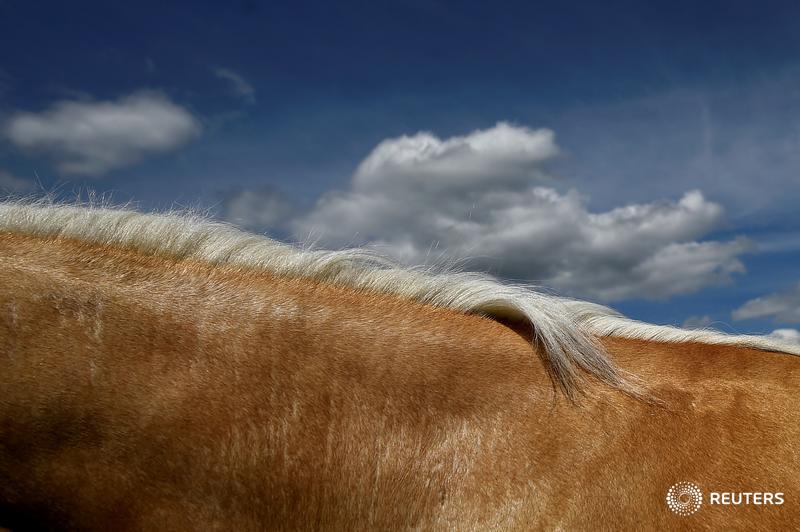
A palomino horse's mane is seen against the sky at Spancil Hill horse fair in Ireland Photo @ClodaghKilcoyne: image via Reuters Pictures @reuterspictures, 25 June 2018

#Afghanistan An ironsmith welds a wheelbarrow at his shop in Mazar-i-Sharif. Photo @Farshadusyan #AFP: image via Frédérique Geffard @fgeffardAFP, 25 June 2018

#Nicaragua A maN attends the funeral of 15-month-old Teiler Lorio, who died during an attack by riot police and members of the Sandinista Youth, at the Milagro de Dios cemetery in Managua Photo @intiocon #AFP: image via Frédérique Geffard @fgeffardAFP, 25 June 2018

#Turkey Turkish incumbent President Recep Tayyip Erdogan on celebrated winning five more years in office with sweeping new powers after a decisive election victory Photo @ArisMessinis #AFP: image via Frédérique Geffard @fgeffardAFP, 25 June 2018

#Spain A "hoguera", satirical structure made of cardboard, portraying current events and personalities, burns on the last night of the annual San Juan celebration in Alicante Photo Jose Jordan #AFP: image via Frédérique Geffard @fgeffardAFP, 25 June 2018

Untitled: photo by Soumyendra Saha, 23 June 2018

Three Sisters, Myohonji Temple, Omachi, Kamakura, 2018: photo by Shin Noguchi, 23 June 2018

Three Sisters, Myohonji Temple, Omachi, Kamakura, 2018: photo by Shin Noguchi, 23 June 2018

Three Sisters, Myohonji Temple, Omachi, Kamakura, 2018: photo by Shin Noguchi, 23 June 2018
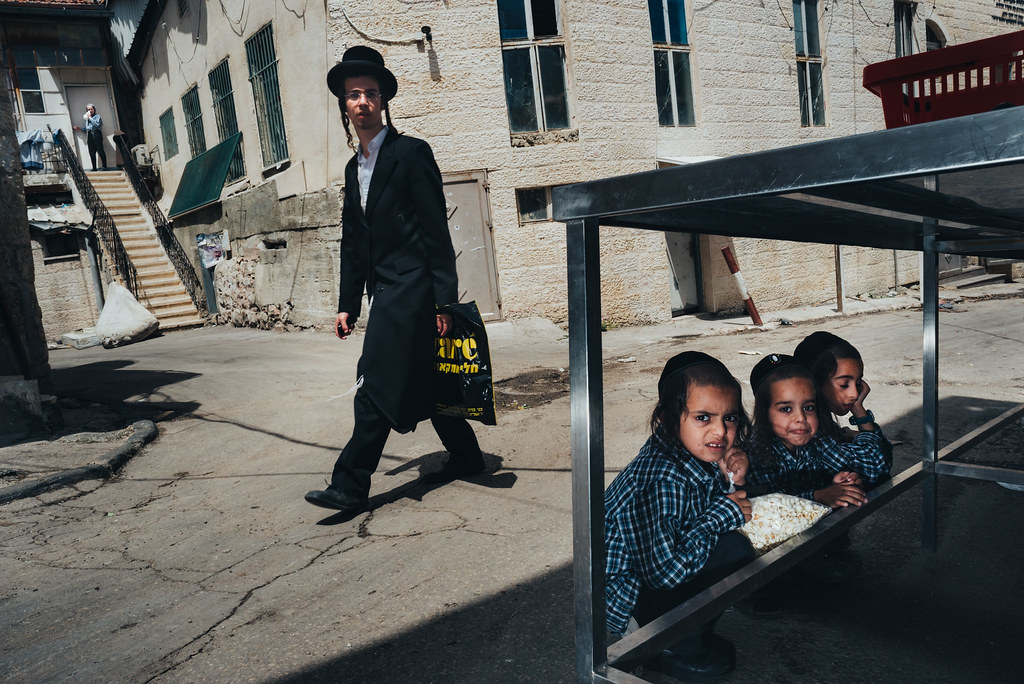
Untitled: photo by Barry Talis, sometime in 2016

Untitled: photo by Gabi Ben avraham, 6 June 2018
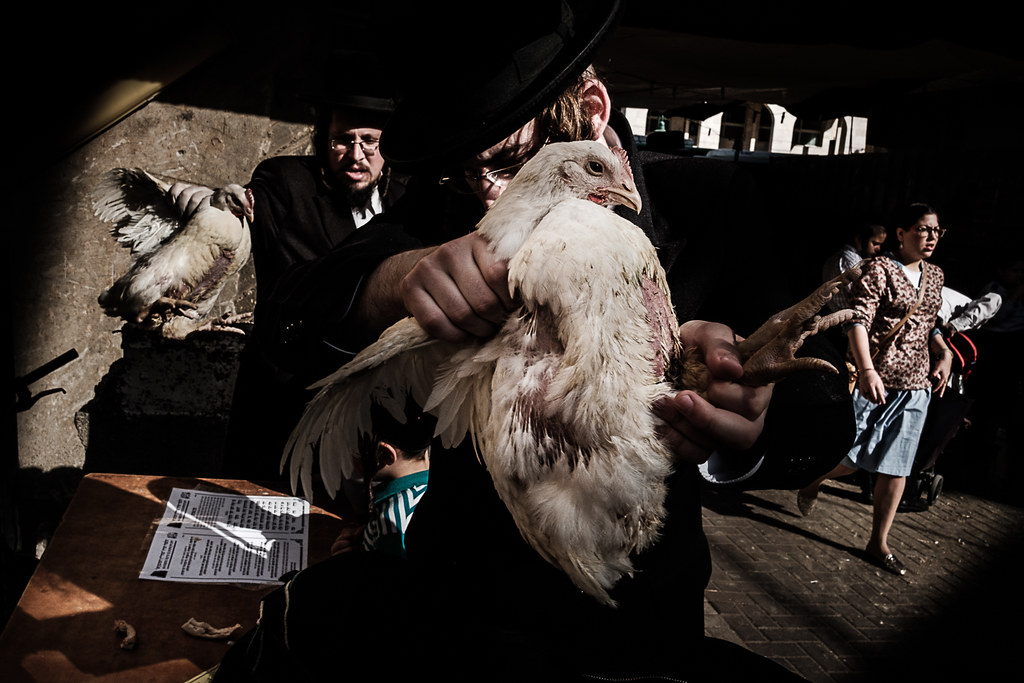
Untitled: photo by Gabi Ben avraham, 10 October 2016
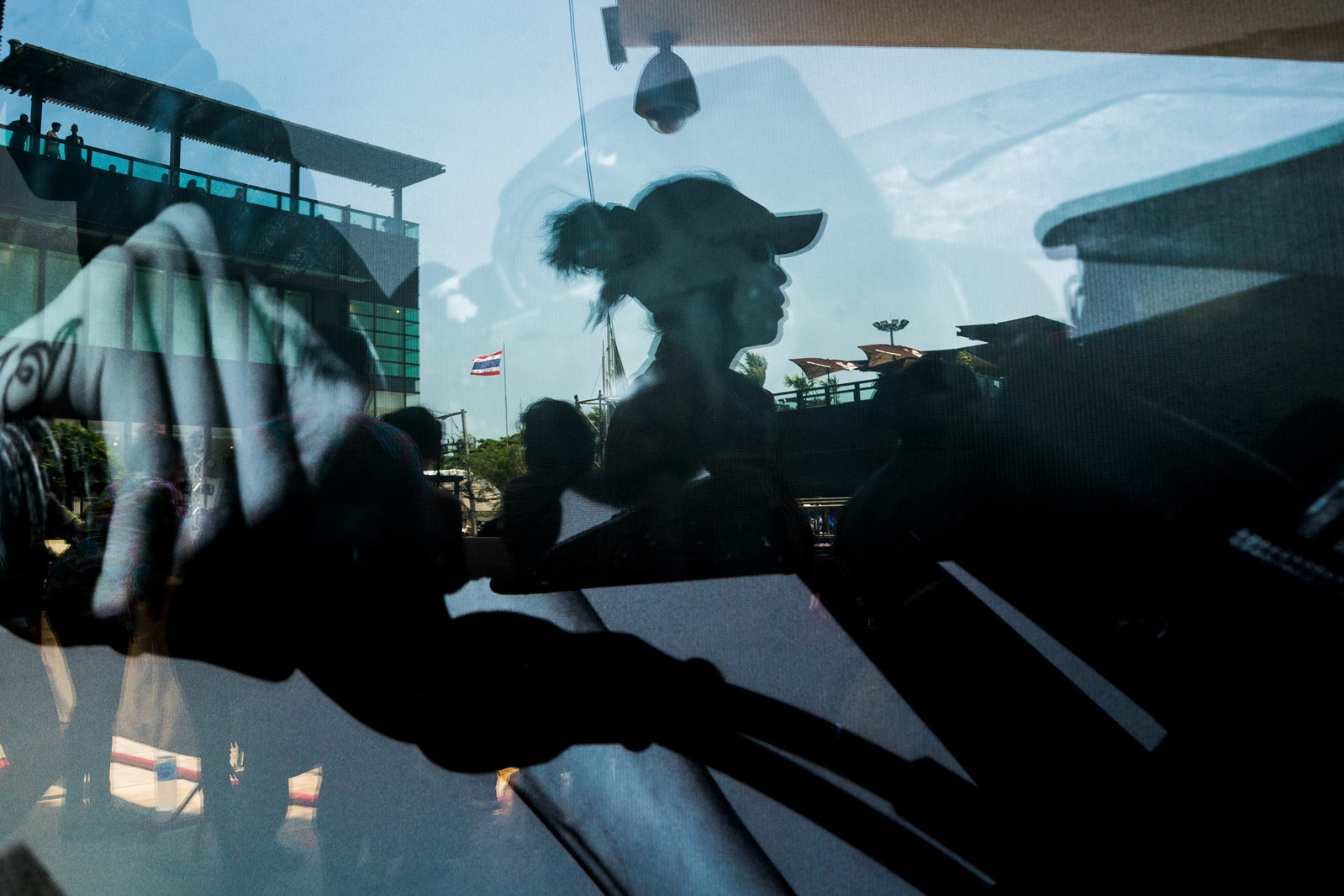
Untitled [Songkran Festival, Thailand]: photo by Job Jetwichan Chaowadee, 19 April 2018

Untitled [Songkran Festival, Thailand]: photo by Job Jetwichan Chaowadee, 19 April 2018

Untitled [Songkran Festival, Thailand]: photo by Job Jetwichan Chaowadee, 19 April 2018
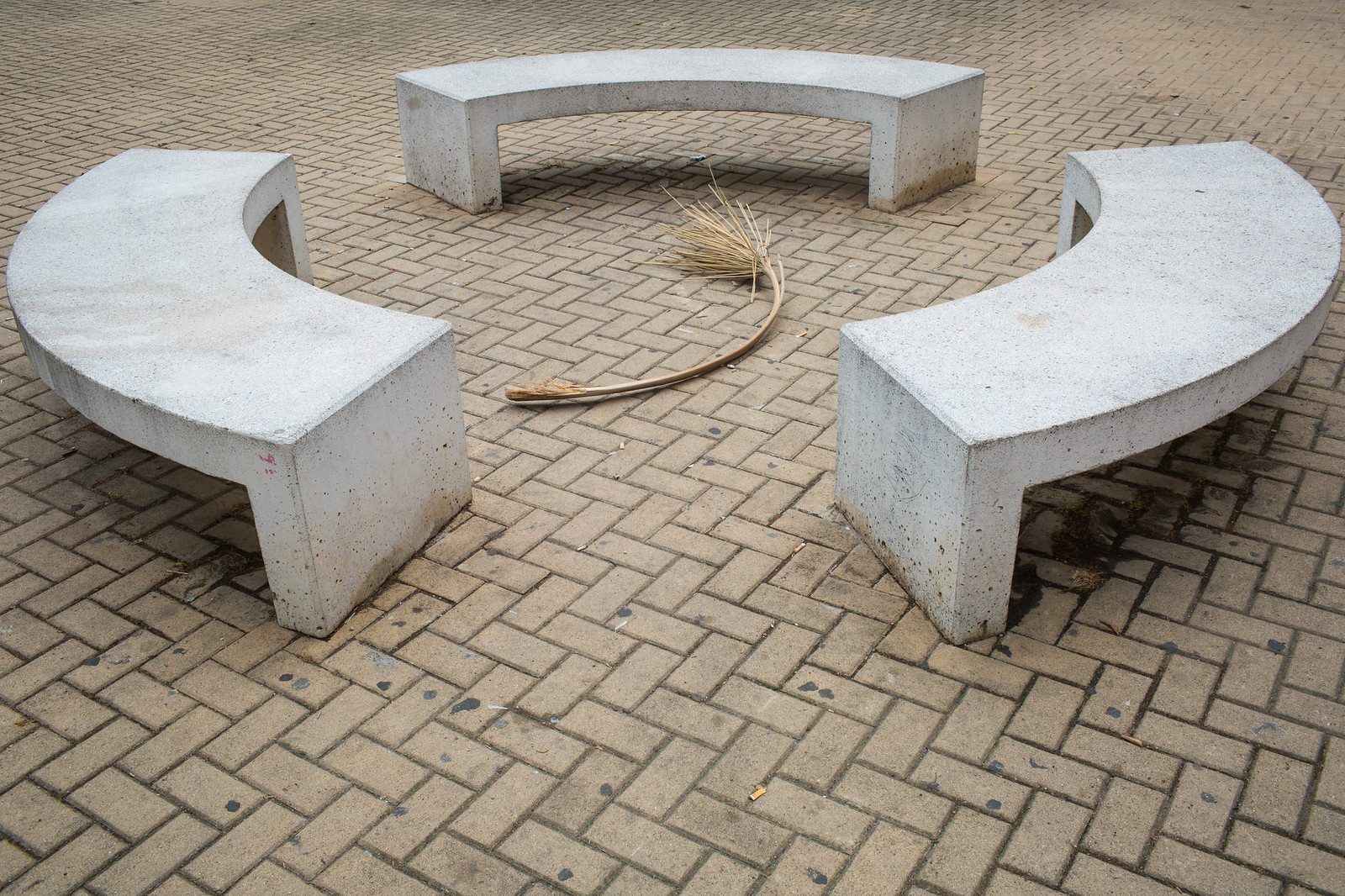
Untitled [Barcelona]: photo by Dimitris Makrygiannakis, 5 June 2017

Untitled [Barcelona]: photo by Dimitris Makrygiannakis, 5 June 2017

Untitled [Barcelona]: photo by Dimitris Makrygiannakis, 5 June 2017




Untitled [Fish Market, Songkhla, Hat Yai, Thailand]: photo by Sakulchai Sikitikul, 24 June 2018

Untitled [Fish Market, Songkhla, Hat Yai, Thailand]: photo by Sakulchai Sikitikul, 24 June 2018

Untitled [Fish Market, Songkhla, Hat Yai, Thailand]: photo by Sakulchai Sikitikul, 24 June 2018
Gathering Storm

Asylum
seekers, denied entry into the U.S. by U.S. Customs and Border
Protection officers, wait in Mexico near Brownsville, Texas: Photo
@Lelliottphoto: image via Reuters Pictures @reuterspictures, 25 June 2018


A gathering storm is seen in Sarasota, Florida, June 24, 2018. Photo Val Vasilescu: image via Reuters Pictures @reuterspictures, 25 June 2018

#Turkey People sleep outside a bar at Beyoglu district in Istanbul Photo @ArisMessinis #AFP: image via Frédérique Geffard @fgeffardAFP, 25 June 2018

#India A child walks along the sea front during heavy monsoon rain showers in Mumbai Photo @punitpix #AFP: image via Frédérique Geffard @fgeffardAFP, 25 June 2018
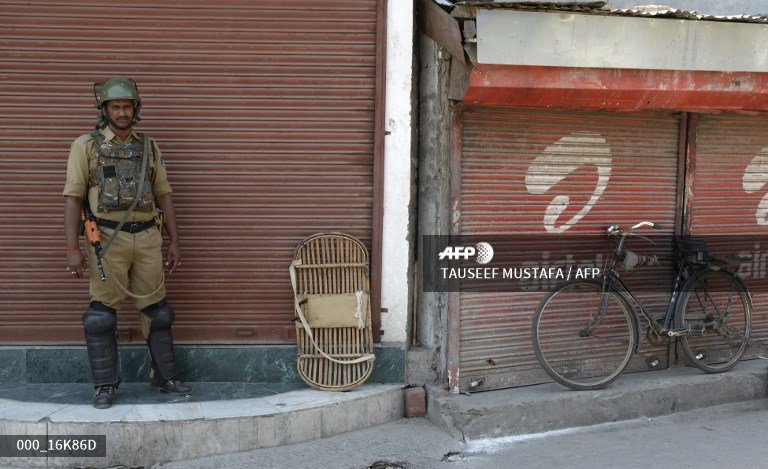
#Indian Occupied Kashmir Paramilitary trooper stands guard during a one-day general strike called by separatists against recent civilian deaths, in Srinagar Photo @TauseefMUSTAFA #AFP: image via Frédérique Geffard @fgeffardAFP, 25 June 2018

#Turkey People sleep outside a bar at Beyoglu district in Istanbul Photo @ArisMessinis #AFP: image via Frédérique Geffard @fgeffardAFP, 25 June 2018

#India A child walks along the sea front during heavy monsoon rain showers in Mumbai Photo @punitpix #AFP: image via Frédérique Geffard @fgeffardAFP, 25 June 2018

#Indian Occupied Kashmir Paramilitary trooper stands guard during a one-day general strike called by separatists against recent civilian deaths, in Srinagar Photo @TauseefMUSTAFA #AFP: image via Frédérique Geffard @fgeffardAFP, 25 June 2018

#UK A couple fly a kite during the 'Catch The Wind Kite Festival' on the seafront in Morecambe Photo @oliscarff #AFP: image via Frédérique Geffard @fgeffardAFP, 25 June 2018

#Kenya A lioness sits on a road-sign looking out onto the savannah at the Amboseli National Park Photo @tkarumba #AFP: image via Frédérique Geffard @fgeffardAFP, 25 June 2018

A palomino horse's mane is seen against the sky at Spancil Hill horse fair in Ireland Photo @ClodaghKilcoyne: image via Reuters Pictures @reuterspictures, 25 June 2018

#Afghanistan An ironsmith welds a wheelbarrow at his shop in Mazar-i-Sharif. Photo @Farshadusyan #AFP: image via Frédérique Geffard @fgeffardAFP, 25 June 2018

#Nicaragua A maN attends the funeral of 15-month-old Teiler Lorio, who died during an attack by riot police and members of the Sandinista Youth, at the Milagro de Dios cemetery in Managua Photo @intiocon #AFP: image via Frédérique Geffard @fgeffardAFP, 25 June 2018

#Turkey Turkish incumbent President Recep Tayyip Erdogan on celebrated winning five more years in office with sweeping new powers after a decisive election victory Photo @ArisMessinis #AFP: image via Frédérique Geffard @fgeffardAFP, 25 June 2018

#Spain A "hoguera", satirical structure made of cardboard, portraying current events and personalities, burns on the last night of the annual San Juan celebration in Alicante Photo Jose Jordan #AFP: image via Frédérique Geffard @fgeffardAFP, 25 June 2018

#Afghanistan An Afghan burqa-clad woman walks along a road on the outskirts of Herat. Photo @hoshangAFP #AFP: image via Frédérique Geffard @fgeffardAFP, 25 June 2018

Untitled [Chumphon, Thailand]: photo by noppadol maitreechit, 21 April 2018

Untitled [Chumphon, Thailand]: photo by noppadol maitreechit, 21 April 2018

Untitled [Chumphon, Thailand]: photo by noppadol maitreechit, 21 April 2018
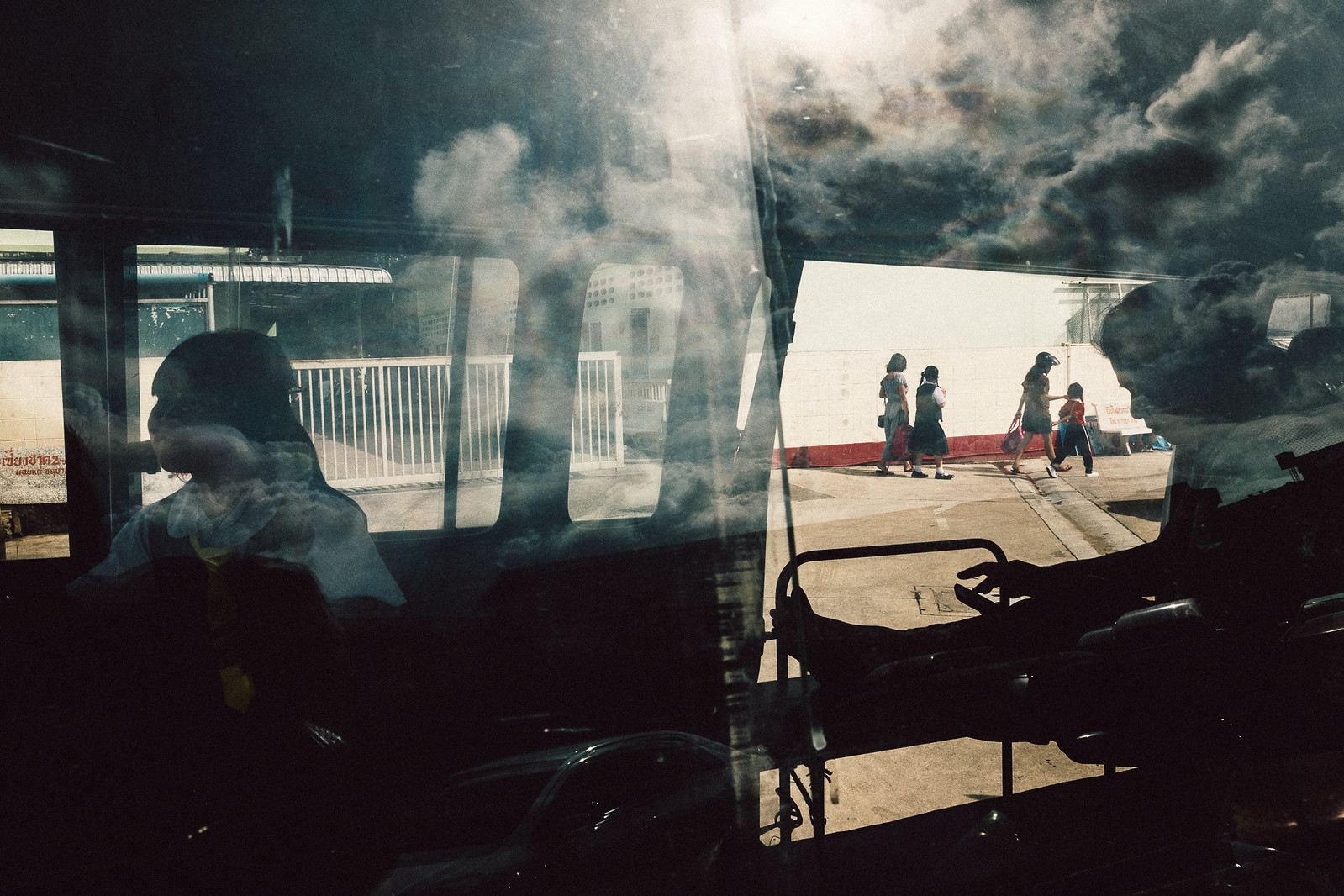
Untitled [Chumphon, Thailand]: photo by noppadol maitreechit, 25 June 2018

Untitled [Chumphon, Thailand]: photo by noppadol maitreechit, 25 June 2018

Untitled [Chumphon, Thailand]: photo by noppadol maitreechit, 25 June 2018

Untitled: photo by Soumyendra Saha, 23 June 2018

Untitled: photo by Soumyendra Saha, 23 June 2018


Untitled [Chumphon, Thailand]: photo by noppadol maitreechit, 21 April 2018

Untitled [Chumphon, Thailand]: photo by noppadol maitreechit, 21 April 2018

Untitled [Chumphon, Thailand]: photo by noppadol maitreechit, 21 April 2018

Untitled [Chumphon, Thailand]: photo by noppadol maitreechit, 25 June 2018

Untitled [Chumphon, Thailand]: photo by noppadol maitreechit, 25 June 2018

Untitled [Chumphon, Thailand]: photo by noppadol maitreechit, 25 June 2018

Untitled: photo by Soumyendra Saha, 23 June 2018

Untitled: photo by Soumyendra Saha, 23 June 2018

Untitled: photo by Soumyendra Saha, 23 June 2018

Three Sisters, Myohonji Temple, Omachi, Kamakura, 2018: photo by Shin Noguchi, 23 June 2018

Three Sisters, Myohonji Temple, Omachi, Kamakura, 2018: photo by Shin Noguchi, 23 June 2018

Three Sisters, Myohonji Temple, Omachi, Kamakura, 2018: photo by Shin Noguchi, 23 June 2018

Untitled: photo by Barry Talis, sometime in 2016

Untitled: photo by Gabi Ben avraham, 6 June 2018

Untitled: photo by Gabi Ben avraham, 10 October 2016

Untitled [Songkran Festival, Thailand]: photo by Job Jetwichan Chaowadee, 19 April 2018

Untitled [Songkran Festival, Thailand]: photo by Job Jetwichan Chaowadee, 19 April 2018

Untitled [Songkran Festival, Thailand]: photo by Job Jetwichan Chaowadee, 19 April 2018

Untitled [Barcelona]: photo by Dimitris Makrygiannakis, 5 June 2017

Untitled [Barcelona]: photo by Dimitris Makrygiannakis, 5 June 2017

Untitled [Barcelona]: photo by Dimitris Makrygiannakis, 5 June 2017




Untitled [Fish Market, Songkhla, Hat Yai, Thailand]: photo by Sakulchai Sikitikul, 24 June 2018

Untitled [Fish Market, Songkhla, Hat Yai, Thailand]: photo by Sakulchai Sikitikul, 24 June 2018

Untitled [Fish Market, Songkhla, Hat Yai, Thailand]: photo by Sakulchai Sikitikul, 24 June 2018
Barbara Lynn performs her 1962 hit You'll Lose a Good Thing on The Beat!, 1966
ReplyDeleteBarbara Lynn performs You'll Lose A Good Thing in an Austin backyard on a 98 degree day playing a Cadillac green left handed guitar with gold roses engraved on the metal top, July 2016
Tough and gorgeous!
Barbara Lynn--Whew! She delivers the goods. She must have been an influence on Janis Joplin, no?
ReplyDeleteThanks Mr tpw, always a kick to get yr take on the song clips. Barbara is a year older than Janis W would be if etc. She was living in Beaumont then (I mean in '62, when Barbara made that first amazing record for Huey Meaux, with Mac Rebennack et al as studio band) and Janis was at the time back and forth between Port Arthur and UT, still an overweight pimply head case, when Barbara had that one great hit, which would undoubtedly have been known to JJ, as how could it not have been.
ReplyDeleteBarbara could do all the things Janis couldn't and never would be able to do, Barbara wrote songs, invented that wonderful unique left handed style maybe based on her take on Jimmy Reed, sang but didn't wail or scream or imitate a train wreck or pant like Lassie (when Janis's bass player in Big Bro famously half joked on stage about her doing that, it was pretty much the end of that band), and was able to hold herself together quite well in public, and for that matter it shouldn't be such a great wonder to me she's still playing, when she wants to, and even mostly stands up, though on 98 degree days, a low stool. In short, a goddess. And, master tpw, if I were your dream manager, I'd immediately propose a tpw / bl duo act, first dibs on the stool to be rotated on successive tour nights.
Barbara Lynn: I'd Rather Go Blind
Some bits given us by a reporter from the San Antonio News-Express who talked with BL a year or two back:
“It was kind of odd to see,” singer Sunny Ozuna of the Sunliners said of the first time he saw Lynn perform and playing guitar. Augie Meyers of the Sir Douglas Quintet was impressed, too.
“There’s weren’t many back in those days,” Meyers said. “Linda Ronstadt, she’d play guitar at home but she never played it onstage. Barbara Lynn always had a guitar with her — a chick playing guitar, writing her own songs. It was great. Huey looked for different things, and he always found it.”
As a child, she would set simple poems to music. During recess, she would be singing. At home, she told her parents she was going to make it. She loved listening to the radio. That’s how she heard the country blues of Jimmy Reed and Sister Rosetta Tharpe, though it would be decades before she even knew what the guitar-playing Tharpe looked like.
Her mother wanted her to study the piano. That wasn’t for Lynn.
“I never was interested,” she said. “I wanted to play something hard. Then I see Elvis Presley, and that really inspired me to play the guitar.”
Lynn, 75, returned to Beaumont 10 years ago after the death of her second husband. She previously resided in Los Angeles.
[continues]
ReplyDeleteShe spoke recently to the Express-News about her life in music.
Q. How did you come up with your guitar style?
A. I taught myself, really. I noticed playing at school, I could never keep the pick, my finger pick in my fingers. It would always slip out. So I ended up using a thumb pick. That’s what I use as of today. That’s what I still use. I use my thumb as a drumbeat when I’m strumming it. A lot of male guitarists ask me, “How do you play like that?” That’s the only way I know how to play.
Q. What are you doing with your thumb?
A. I’m wrapping it around and using mostly the bass strings, like the first two or three strings. But like I said, I created my own style, and like I said, I’ve been doing it a little over 50 years now. People seem to like it. It’s making the beat and (forming) the chord. There was no other way. I was just discovering my playing ability.
Q. How did guys treat you?
A. They’d stare at me playing. I heard some of them say, “Wow! How is she doing that?”
Q. Were they skeptical at first?
A. Yeah, at first. Oh, yeah. I did get a little of that, too. But then, once I get going, everybody just falls on in. I usually tell the drummer to watch me closely because I do a lot of breaks.
Q. The Supremes, Temptations and Stevie Wonder were groomed for the stage. Where did your moves come from?
A. Nobody ever taught me how. Down South here, we never had anything big (like Motown) going like that. I started my own style and I kept it like that with the way I move. I turned 75 last month, and some shows I have to have a stool to sit on. Sometimes I sit awhile and then I stand back up and continue on.
Q. Does it ever get old?
A. A lot of people ask me if I’ve thought about retiring. So far, my health is still all right. I have little ups and down like everybody else. But I love performing, and it’s what I’ve always done. I never had an 8 to 5 job. Before I even entered my 12th year in high school, I was playing and working in different clubs. Of course, I had to keep that on the down low because I was still in school. I didn’t want the principal to know I was down in clubs. But then, my mother would travel with me.
Q. Coming out of Beaumont, were you aware of Johnny Winter and Edgar Winter when they were blues kids Johnny & the Jammers?
A. Yes, indeed. They were fantastic. In fact, they got really big. I thought they were great from young kids. They started before me. They were hot.
Q. What was Huey Meaux like?
A. He was the one who really brought me out there, brought my name out. But see, I was discovered by Joe Barry. Joe Barry was in the clubs across the state line at the Palomino Lounge in Louisiana and across from there was Luann’s. They booked me in both of those clubs. (Berry) came by the stage and lookin’ at me playing everything.
He went back and told Huey Meaux. Huey Meaux contacted me, and when he did, I already had enough songs for an album. I’m telling you, that’s how much writing I was doing through my young school years. I was writing with the women in mind. Huey Meaux treated me like a daughter.
Q. Is there something about the music in your neck of the woods?
A. In my neck of the woods, it really was blues. Of course, country and western here is very heavy.
Q. Do you ever get tired of talking about the old days?
A. No. That’s like my roots. That’s how I started. That’s where I started. “You’ll Lose a Good Thing” took me everywhere.
"Barbara is a year older than Janis W would be"
ReplyDeleteSorry about the patch of gibberish, there. Meant to type "Janis J". But it's like somebody else's digits any more, with the super-cool crippling arthritis 'n all - dead fingers do the talkin'...
It was so touching to watch the face of the young drummer as he watched Barbara beginning to engage the first few chords of You'll Lose A Good Thing. He could feel the drama. Is she going to be able to handle it.
He needn't have worried... and plainly, then, after that, he wasn't. He'd been sent straight to heaven.
Don't think I've read Lange's writing.
ReplyDeleteChild labour in tobacco farms in the US
Child Labour in tobacco farms in Malawi
Barbara Lynn is something else. Tough and gorgeous is right.
Tobacco farming a deadly affair at every stage of the process and in every place where it happens. Bad business all round.
ReplyDeleteLange, who went on making images all through her life, in her later years understood the proliferation of images was becoming, had become, a nasty business as well.
From a 1964 oral history interview:
DOROTHEA LANGE: ... I have it too, and that is the importance of recognizing that we have that problem, that we share it with millions of others. It takes a lot to get full attention to a picture these days, because we are bombarded by pictures every waking hour, in one form or another, and transitory images seen, unconsciously, in passing, from the corner of our eyes, flashing at us, and this business where we look at bad images -- impure. I don't know why the eye doesn't get calloused as your knees get calloused or your fingers get calloused, the eye can't get…
RICHARD K. DOUD: I hope we're not losing any of our sensitivity.
DOROTHEA LANGE: I think we are. I think we are. We are misusing the language of picture, and I tell you, it's an exploited medium. It is not a developing medium; it's being destroyed. That's what I meant.
BTW for anybody interested in studying Lange's work there are a lifetime's worth of negatives nobody has ever looked at. This was the infinite compulsive shutterbug. There are 165,000 b+w negs in the LoC FSA archive of which some thousands are Lange's. She spent her later years in Berkeley and photographing everything - the fogs enveloping the oaks on the hillside in minute by minute stages, a drama that unfolds in descending images in her archive at Oakland Museum of Calif.
ReplyDeleteAll of that is free and accessible to all who may be interested. It is pleasant to think someone might be interested.
But who's kidding who - by "think" what I really mean, of course, is "imagine"... or possibly "dream"?
ReplyDelete